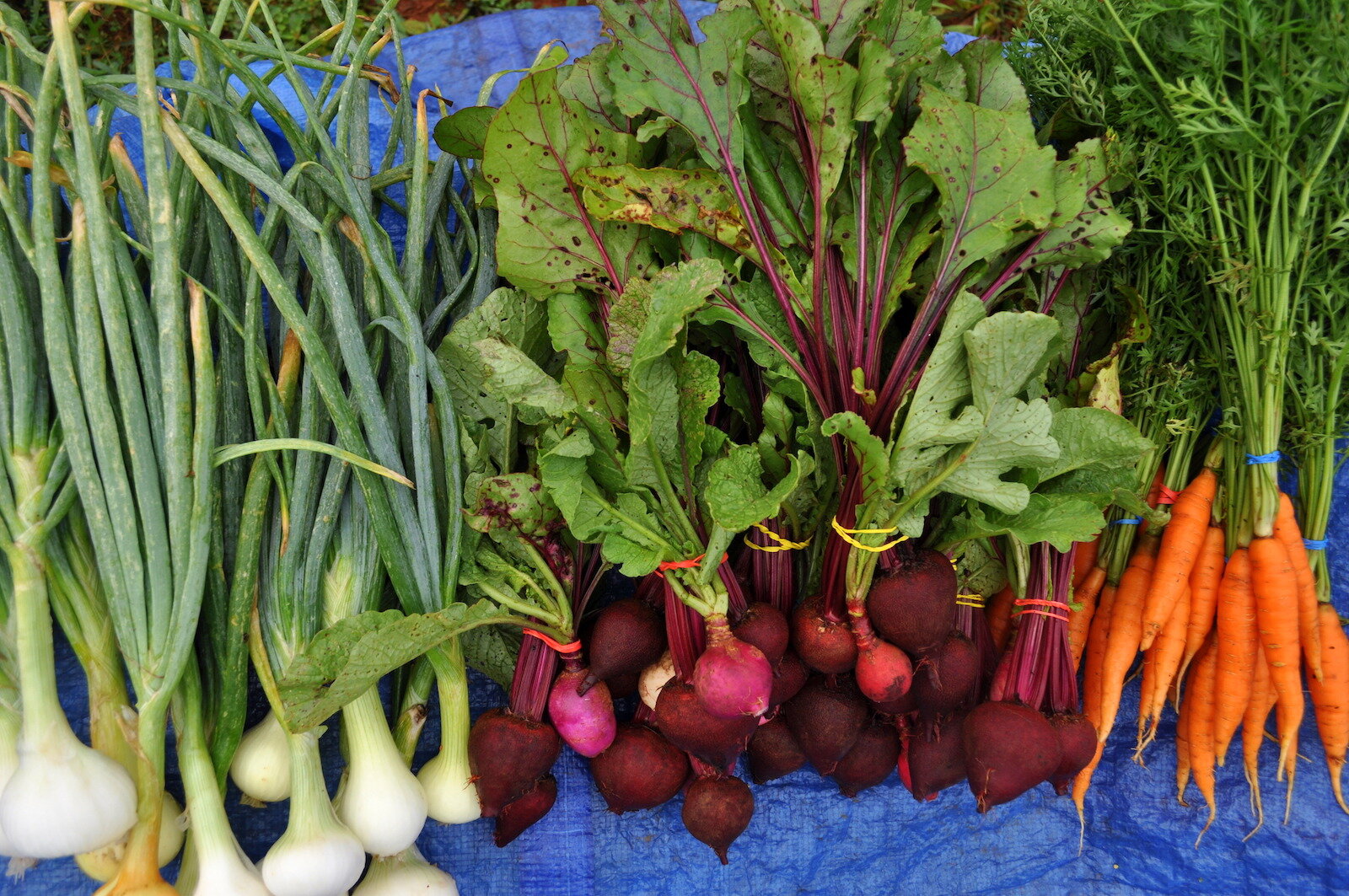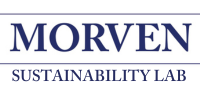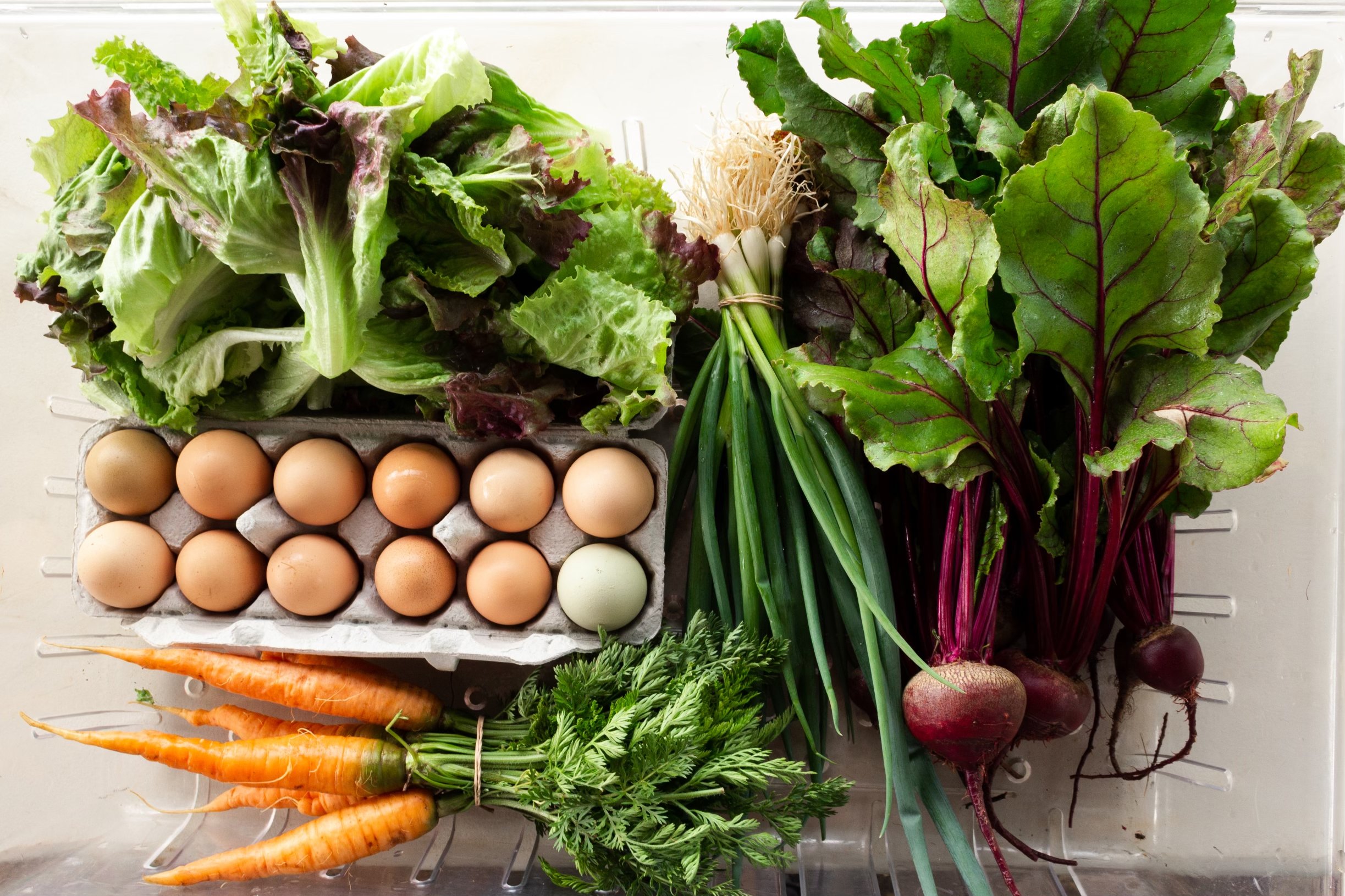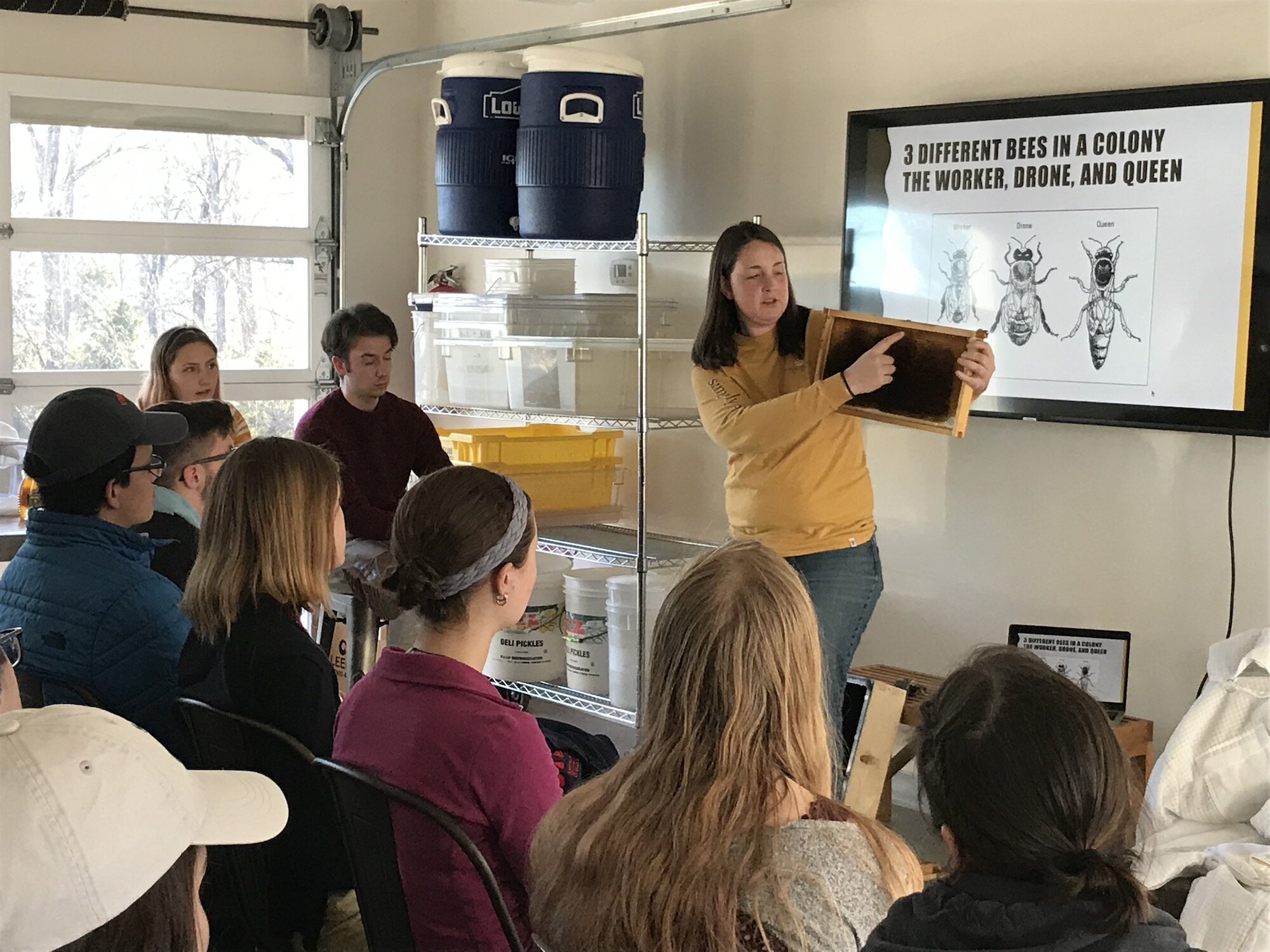
Our Produce
Students sustainably grow over 40 different crops at the Morven Kitchen Garden. Learn more about the exciting ways our produce is used, how we grow our crops, and bees at the garden.
Where our Produce Goes
Morven Kitchen Garden produce makes its way around the Charlottesville and Albemarle area. See below for a few ways our produce is distributed, how you can sign up to receive our produce, and to learn about programming centered around what is produced at the garden.
Our CSA
CSA stands for Community Supported Agriculture and MKG students created their program in 2011, the year the garden started. Local eaters purchase a share and receive a weekly bag of fresh produce. Students participate in all aspects of the CSA operation from growing the produce, selling shares and customer relations, to packaging and deliveries.
Donations
We are excited that UVA student grown produce can be part of an effort to feed our community. MKG donates to local nonprofits that work to address food insecurity in Charlottesville. Through our donations we also support efforts to address food insecurity at UVA. Here is a useful resource for information about food insecurity at UVA.
UVA Dine
Since 2017, MKG has grown and sold produce to UVA Dine. We are excited to partner with them to bring student grown produce to the Dining Halls across Grounds. Purchasing MKG produce, also supports UVA’s Sustainable Food Action Plan goal to increase the percentage of sustainable food options available on Grounds.
Educational Programming
We love that the garden and our produce can be used in educational programing at Morven. Local elementary school students have harvested and sampled seasonal produce as part of Food Lab field trips. MSI classes have picnicked in the garden and enjoyed MKG salad. We also utilize our produce in our annual garden openhouse - Gazpacho in the Garden.
How We Grow
The Morven Kitchen Garden is proud to practice, promote, and teach sustainable agriculture. As we grow food, we strive to be a good caretaker of our garden soil, water, air, and the creatures who inhabit it.
Our crops are grown using organic methods with a focus on building healthy soils through crop rotations and compost. Though not certified organic, MKG only uses techniques and products that have been approved for organic production by the NOP, National Organic Program.
MKG produce has been GAP certified since November 2017. GAP stands for Good Agricultural Practices and is a voluntary USDA Food Safety audit program. This certification allows everyone who eats our produce to know we have created and implemented a food safety plan throughout our garden, from planting seeds to harvesting and delivering produce. This plan aims to keep both the produce and our student growers safe.
Our garden environment is one of community and learning. Through volunteer workdays and semester internships, students join together to grow and harvest food. We hope students have a fun experience working together in the garden and leave with new insights and ideas about fresh produce, sustainability, and health.
Bees
Bees have been an integral part of the garden since a student introduced the first hives in 2012. Bees play a valuable role in the garden pollinating some of our crops. They also reinforce our commitment to crop diversity as well as serve as a vital reminder that we are part of a larger ecosystem.
The beehives at the garden also provide a unique learning opportunity for students. Over the years, several area beekeepers have volunteered their time and shared their expertise in tending the hives. One particular student spent her summer studying bees and concluded her work with a Beekeeping Proposal. We now have a Morven Student Beekeeper (currently MKG Exec President Kaitlyn Elliot). We are excited to create and provide more hands-on educational beekeeping opportunities for students in the future.
To learn more about bees, beekeeping, and their invaluable contribution to our ecosystem, check out the resources at the ATTRA website.






















